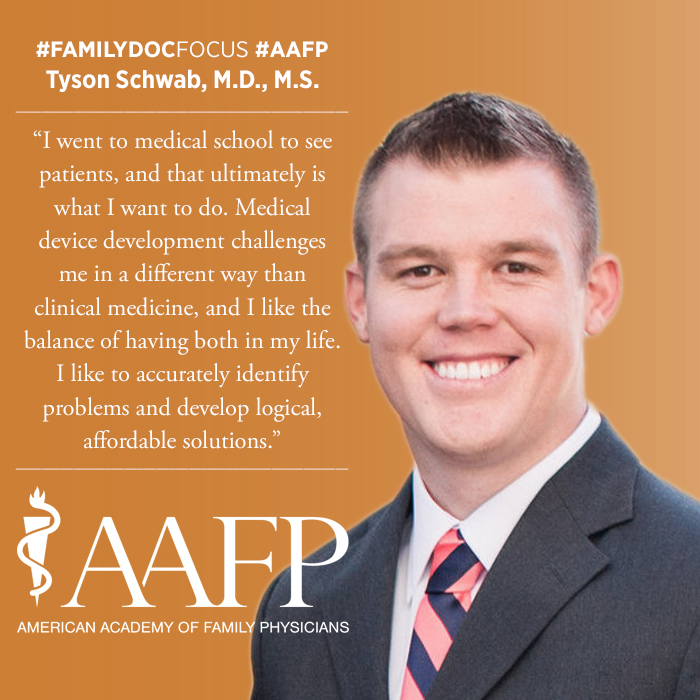Future FP Is Already an Educator, Innovator
December 03, 2018, 09:45 am David Mitchell – Tyson Schwab, M.D., M.S., hopes his career as a family physician will involve teaching and medical innovation.

The first-year family medicine resident already has been involved in both.
During his studies at the University of Utah School of Medicine, Schwab was tutoring high school students who were preparing for the ACT when he noted a need for a better curriculum and preparation experience. Schwab took it upon himself to write one, which led to him teaching four-week preparation courses in multiple states.
That venture, in turn, led to him writing a curriculum for the Graduate Management Admission Test, which evolved into an online course for students from Japan applying to U.S. master of business administration programs.
Schwab, who still teaches ACT courses, later took time between his second and third year of medical school to pursue a master's degree in bioengineering at the University of Utah College of Engineering. During that time, he and two physician partners created two medical devices that are now undergoing research and clinical trials. One is a noninvasive hemoglobin monitor. The other is a sterile, bladeless umbilical cord-cutting kit intended for rural global health settings.
"There are places in the world where people are using things like rocks, dirty knives and even their teeth to cut umbilical cords," he said. "The idea is to increase access to sterile options that are affordable and effective while decreasing the rate of tetanus, omphalitis and other complications."
By the time he finished medical school, Schwab had two job offers from engineering consulting companies. He said the decision to decline the offers and continue his training at the Utah Valley Family Medicine Residency program was an easy one.
"I went to medical school to see patients, and that ultimately is what I want to do," he said. "Medical device development challenges me in a different way than clinical medicine, and I like the balance of having both in my life. I like to accurately identify problems and develop logical, affordable solutions."
Schwab was drawn to primary care during his first-year medical school rotations when he noticed that his family medicine preceptors had interests similar to his own, including quality improvement and health policy. As a regional medical student delegate to the AMA House of Delegates, he said family physicians again caught his attention in that setting.
"I was impressed with the AAFP delegation and the way they advocated for patients and a better health care system versus other interests," said Schwab, who has been part of the AAFP delegation for the past two years. "That was very appealing to me."
Schwab said he kept an open mind during his third-year rotations and saw things he liked in internal medicine, obstetrics and pediatrics.
"At the end of the day, I wanted to be an outpatient expert," he said. "With all those things combined, family medicine was the obvious, perfect fit for me."